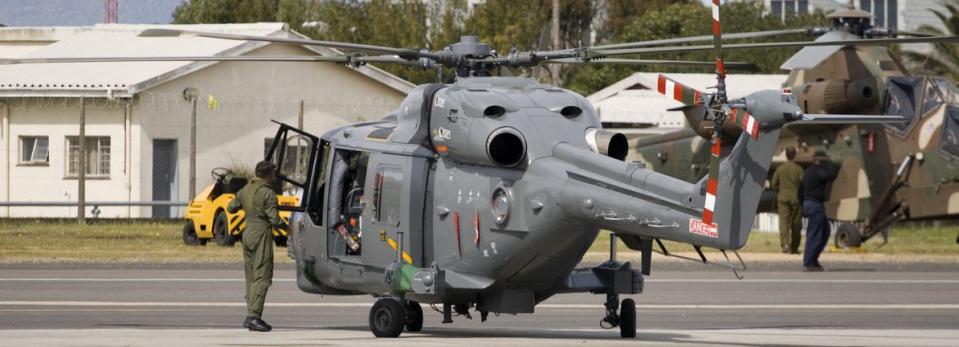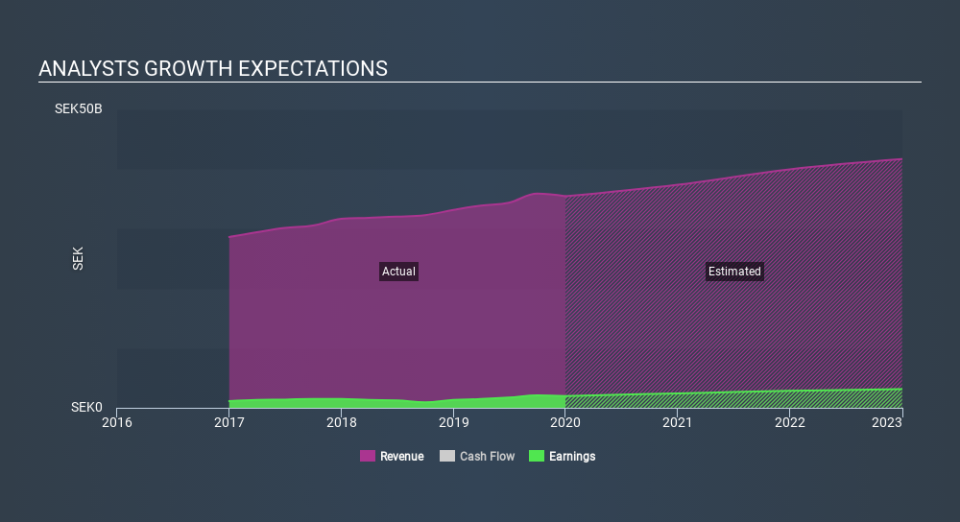Here's What Analysts Are Forecasting For Saab AB (publ) After Its Annual Results

Last week, you might have seen that Saab AB (publ) (STO:SAAB B) released its annual result to the market. The early response was not positive, with shares down 3.8% to kr314 in the past week. Revenues of kr35b were in line with forecasts, although statutory earnings per share (EPS) came in below expectations at kr14.81, missing estimates by 4.2%. Following the result, analysts have updated their earnings model, and it would be good to know whether they think there's been a strong change in the company's prospects, or if it's business as usual. So we collected the latest post-earnings statutory consensus estimates to see what could be in store for next year.
See our latest analysis for Saab
Taking into account the latest results, the most recent consensus for Saab from five analysts is for revenues of kr37.4b in 2020, which is a satisfactory 5.5% increase on its sales over the past 12 months. Statutory earnings per share are expected to surge 21% to kr17.96. Yet prior to the latest earnings, analysts had been forecasting revenues of kr38.2b and earnings per share (EPS) of kr19.01 in 2020. Analysts are less bullish than they were before these results, given the reduced revenue forecasts and the small dip in earnings per share expectations.
Despite the cuts to forecast earnings, there was no real change to the kr397 price target, showing that analysts don't think the changes have a meaningful impact on the stock's intrinsic value. The consensus price target just an average of individual analyst targets, so - considering that the price target changed, it would be handy to see how wide the range of underlying estimates is. There are some variant perceptions on Saab, with the most bullish analyst valuing it at kr520 and the most bearish at kr349 per share. These price targets show that analysts do have some differing views on the business, but the estimates do not vary enough to suggest to us that some are betting on wild success or utter failure.
In addition, we can look to Saab's past performance and see whether business is expected to improve, and if the company is expected to perform better than wider market. It's pretty clear that analysts expect Saab's revenue growth will slow down substantially, with revenues next year expected to grow 5.5%, compared to a historical growth rate of 7.9% over the past five years. Compare this against other companies (with analyst forecasts) in the market, which are in aggregate expected to see revenue growth of 8.3% next year. Factoring in the forecast slowdown in growth, it seems obvious that analysts still expect Saab to grow slower than the wider market.
The Bottom Line
The most important thing to take away is that analysts downgraded their earnings per share estimates, showing that there has been a clear decline in sentiment following these results. Unfortunately, analysts also downgraded their revenue estimates, and our data indicates revenues are expected to perform worse than the wider market. Even so, earnings per share are more important to the intrinsic value of the business. The consensus price target held steady at kr397, with the latest estimates not enough to have an impact on analysts' estimated valuations.
Even so, the longer term trajectory of the business is much more important for the value creation of shareholders. We have forecasts for Saab going out to 2022, and you can see them free on our platform here.
You can also view our analysis of Saab's balance sheet, and whether we think Saab is carrying too much debt, for free on our platform here.
If you spot an error that warrants correction, please contact the editor at editorial-team@simplywallst.com. This article by Simply Wall St is general in nature. It does not constitute a recommendation to buy or sell any stock, and does not take account of your objectives, or your financial situation. Simply Wall St has no position in the stocks mentioned.
We aim to bring you long-term focused research analysis driven by fundamental data. Note that our analysis may not factor in the latest price-sensitive company announcements or qualitative material. Thank you for reading.

 Yahoo Finance
Yahoo Finance 
